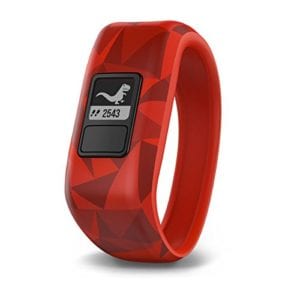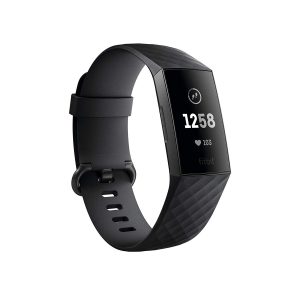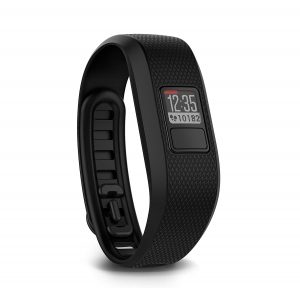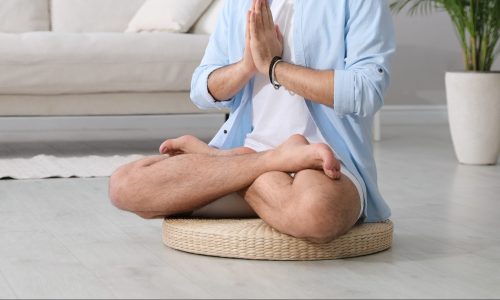The Best Fitness Tracker
We looked at the top 11 Fitness Trackers and dug through the reviews from 64 of the most popular review sites including and more. The result is a ranking of the best Fitness Trackers.
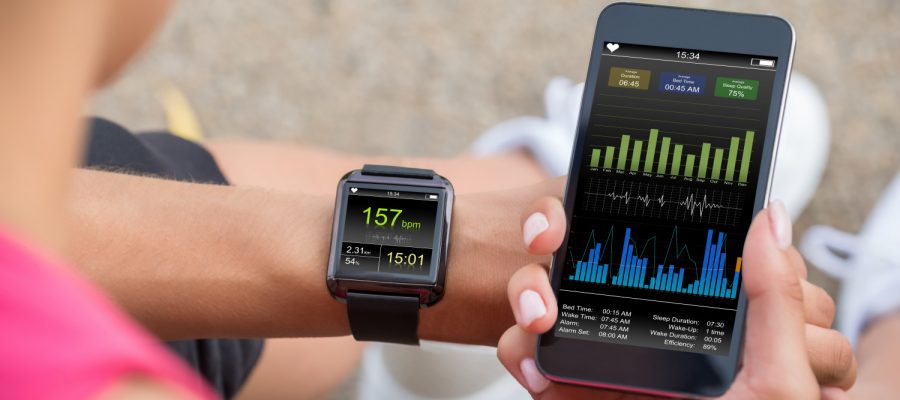
Our Review Process
Don't Waste Your Money is focused on helping you make the best purchasing decision. Our team of experts spends hundreds of hours analyzing, testing, and researching products so you don't have to. Learn more.
Our Picks For The Top Fitness Trackers
- 1. Amazfit Bluetooth Sports Fitness Tracker
- 2. SoundPEATS Sleep Tracker Touchscreen Fitness Tracker
- 3. Garmin Vivoactive 3 Heartrate Monitor Fitness Tracker
- 4. Fitbit Versa Water Resistant Music Fitness Tracker
- 5. Garmin vívofit jr, Kids Fitness/Activity Tracker
- 6. HalfSun Ergonomic Weather Forecast Fitness Tracker
- 7. Fitbit Charge 3 Smartphone Compatible Fitness Tracker
- 8. Fitbit Flex 2 LED Lights Fitness Tracker
- 9. Fitbit Alta HR Step Tracking Fitness Tracker
- 10. Garmin Vívosport Slim Pace Tracking Fitness Tracker
- 11. Garmin Vivofit 3 Silicone Auto-Activity Detecting Fitness Tracker
The sleek design of this fitness tracker fits men, women and children. The device is compatible with Amazon Alexa and has too many attractive features to list. Just a few things this tracker can do include monitor your sleep patterns, keep an eye on your heartrate and track up to 11 different sports activities.
Gender Neutral DesignThis fitness tracker offers a long battery life, allowing you to wear it for two weeks at a time in between charges.
Since this fitness tracker is waterproof, you can use it during swimming exercises. It does an excellent job of monitoring your health, keeping track of your steps and reporting on calories burned. Android users will also appreciate that the tracker is compatible with smartphones to allow incoming texts, calls and social media notifications to come...
Easy to ReadThe large screen on this fitness tracker makes it an excellent choice for Seniors and those with poor eyesight.
This fitness tracker offers tons of bells and whistles, including Garmin Pay, which lets you pay for things with your watch — no need to carry your wallet or credit card on an evening run. It comes with 15 preloaded sports apps, which is useful if you're looking for new ways to get active. We also loved the stylish interface and lightweight, flex...
Leave Your Wallet BehindThis fitness tracker boasts 15 preloaded sports apps, great for those looking for new ways to get active.
Made with an ergonomic design, this fitness tracker is comfortable to wear. It has a large color screen that is easy to read and comes with a host of features. Exercise enthusiasts will enjoy the sport modes, sleep monitor and sedentary alerts on top of the traditional heart rate and blood pressure monitoring.
Three Color ChoicesThis fitness tracker is available in white, black and gray.
Buying Guide
Fitness trackers are truly the must-have accessory for a healthy lifestyle. These handy devices offer a wealth of health knowledge right at your fingertips — or, more accurately on your wrist. Armed with the right fitness tracker, you can record and analyze your way to the healthiest you yet. If you haven’t tried them yet, prepare to be amazed and converted.
Wearable tools can be just as important as the recipes, nutrition and fitness accessories in your arsenal. Together, they can help you achieve your goals. Fitness trackers are like mini-supercomputers right on your wrist. They record and monitor movement and fitness-related activities. They track the number of steps taken, distance walked, sleep duration and quality, heart rate and more.
MORE: Best Walking Shoes For Foot Pain, According To Podiatrists
“Fitness trackers are a great way to encourage you to be healthier, walk more steps, be more active, burn more calories, and commit to being fit,” says Stephanie Mansour, a certified personal trainer and the founder of fitness brand Step It Up Steph. “They are a physical symbol of your commitment to be fit. Many of them have reminders, too. If you’re sitting for too long, they’ll let you know! If you haven’t walked very far or slept enough, they’ll tell you! It’s like an accountability partner that you pay for once — for the actual tracker — but it continues to offer you support and guidance for free after purchase.”
While the category started simple and basic, they have become very advanced over the years. There are separate modes that enable them to track specific types of exercise and can distinguish between swimming, running and cycling, as well as keep logs of your favorite routes. No matter what model you have, you can connect and upload all the stored data to your computer or smartphone to analyze and learn from your activities.
It’s not a passing trend, either. The global fitness trackers market clocked in at just under $18 billion in 2016. That value is expected to grow to more than $62 billion within the next four years. Smartwatches, specifically, are driving most of the predicted growth. Some of the leading fitness tracker manufacturers include Fitbit, Samsung, Nike, Adidas, Google and Apple. Some lesser-known manufacturers, like Lintelek, have also launched products in the fitness tracker category.
Fitbit is one of the most popular fitness tracker manufacturers. The company launched its very first tracker back in 2007 and continues to lead the category with innovative new technology and features.
Now, Fitbit, Apple, Garmin and more offer a wide variety of different fitness trackers and smartwatch models from affordable to splurge price points. There are high-tech models with detailed data tracking for serious athletes as well as simple watches for those just dipping their toe into fitness tracking and data. There are also fitness trackers made for children ages 8 and up, meant to encourage movement and healthy habits early. Whether you’re trying to make fitness fun for youngsters or start your own health challenge, there is a Fitness tracker for everyone and every goal.
“Look for a tracker that tracks things you care about,” Mansour says. “Don’t care about using it for your workout, but more interested in having it to encourage you to walk more? Don’t waste money on a super fancy tracker if you only want it to track your steps.”
Fitness trackers are designed to seamlessly track every part of your day — including activity, exercise, food, weight and sleep. That can be a bit overwhelming. However, according to Fitbit’s website, they will “help you find your fit, stay motivated and see how small steps make a big impact.”
They monitor heart rate with PurePulse. The newest watches, like Fitbit Charge 3 and Fitbit Versa, include SmartTrack. This innovative technology automatically senses different types of exercises and records them accordingly in the Fitbit app. For example, if you hop on a spin bike and start pedaling, the watch will begin recording as a cycling activity.
The current Fitbit smartwatches, like Fitbit Versa, also incorporate apps and features like wallet-free payments, calendar alerts and text message updates. Today’s Fitbits and fitness trackers are so much more than step counters. They also enhance and simplify many everyday tasks.
In addition to encouraging healthy lifestyles, Fitbit and other fitness tracker apps connect all users in a like-minded community. In the apps, you can share your goals and find motivation from people around the world. It also opens up the opportunity for fun competitions with friends, family or coworkers. You can compare a variety of statistics to push yourself further and hit goals faster.
All those tracker insights add up to real lifestyle changes. Researchers from Arizona State University discovered that the combination of wearing a Fitbit Zip activity monitor and expressing more mindfulness throughout the week increased levels of physical activity. For a relatively low cost (most models range from $50 to $250), fitness trackers help motivate you to kickstart and stick with a fitness plan, hold you accountable, encourage goal setting and, best of all, help you lose weight.
Pick the right fitness tracker, and you’re well on your way to living your healthiest life and achieving goals you haven’t even dreamed of yet.
Our Expert Consultant

Certified Personal Trainer, Health and Wellness Expert
Stephanie Mansour, host of “Step It Up with Steph” on public broadcasting, has been coaching women for over a decade on how to lose weight and make it last. She has a Bachelor of Arts in communications with an emphasis on women’s studies and psychology from the University of Michigan. She holds certifications in life coaching, personal training, yoga and Pilates.
Why we recommend these fitness trackers?
Products Considered
Products Analyzed
Expert Reviews Included
User Opinions Analyzed
Our experts reviewed the top 11 Fitness Trackers and also dug through the reviews from 64 of the most popular review sites including and more. The result is a ranking of the best of the best Fitness Trackers.
DWYM is your trusted roduct review source. Our team reviews thousands of product reviews from the trusted top experts and combines them into one easy-to-understand score. Learn more.
The Best Bang For Your Buck
HalfSun Ergonomic Weather Forecast Fitness Tracker
Key Takeawy
Made with an ergonomic design, this fitness tracker is comfortable to wear. It has a large color screen that is easy to read and comes with a host of features. Exercise enthusiasts will enjoy the sport modes, sleep monitor and sedentary alerts on top of the traditional heart rate and blood pressure monitoring.
What to Look For
- Fitness trackers range in price depending on included features. The more advanced the tracking features, the higher the price points.
- Fitness trackers and smartwatches run on rechargeable batteries. When drained, they require recharging by plugging into power sources or outlets.
- The battery life of different trackers varies based on the activities tracked, but some can last up to five days between charges.
- Fitness trackers use special sensors to monitor and record vital health stats throughout your day. Some of the info recorded includes activity, heart rate, food, weight and sleep. The more advanced models incorporate a built-in GPS for improved accuracy and ease of use.
- The models with GPS can also produce and follow maps of specific routes, making workouts more streamlined wherever you are.
- Fitness trackers, including Fitbits, Garmin, Lintelek and more, often come with an app that connects the device and information recorded on your phone or tablet. Some also bring users in a global online community together to connect, compete and learn from each other.
- The fitness trackers sync data to your computer or smartphone so that you can access additional analysis and progress reports.
- Many fitness trackers feature water-resistant and waterproof components, so they can be worn in rain and while swimming without worrying. Make sure your model has this capability if that’s an important feature to you.
More to Explore
The very first fitness trackers date back to Renaissance times. Yes, really. Leonardo Da Vinci sketched what looked like an early version of a pedometer, a basic device used to track the number of steps taken. Then, in 1788, Thomas Jefferson introduced the first pedometer in the U.S. Historians believe his inspiration for the device could have come from the motion sensor of the Swiss or French watches.
It took a few hundred years more before pioneers developed high-tech trackers. Fitbit founders Eric Friedman and James Park recognized the potential of wireless technology in the fitness industry. With the first product, they “embarked on a journey to create a wearable product that would change the way we move,” according to the Fitbit website. Suffice it to say, they succeeded and went on to realize that potential and then some. More than 10 years later, both original founders still lead Fitbit and continue to introduce new and innovative fitness technology each year.






